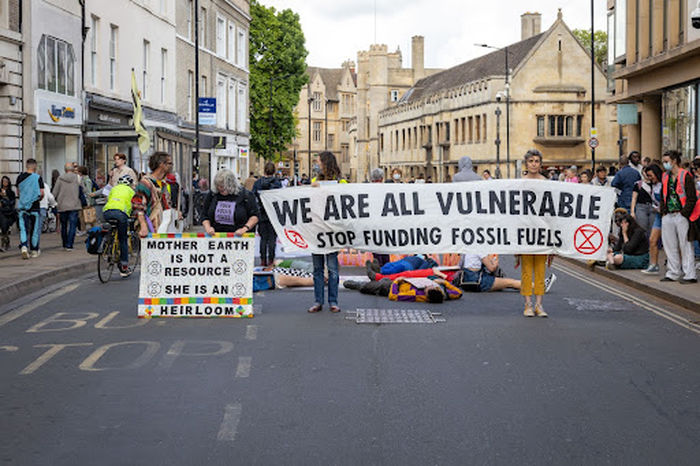Cambridge dons to vote on cutting fossil fuel ties
The University will vote on whether to stop accepting funding from coal, oil and gas companies as soon as this autumn

Cambridge is set to become the first leading university to vote on a proposal to stop accepting funding from coal, oil and gas companies.
The proposal calls on the University to no longer accept research funding or collaborate with fossil fuel companies that continue to explore for new reserves or build new fossil fuel infrastructure.
It would also cover companies which retain membership of trade associations involved in lobbying against climate legislation.
Cambridge collaborates with companies including BP and Shell through institutes, professorships and other research funding.
Academics and senior staff could vote on the proposal as early as this autumn, following months of pressure and direct action from activists and academics.
The University Council could still amend or delay the proposal before it proceeds to a vote, which follows a 2020 commitment to divest endowments from fossil fuel companies, where the University promised to “seek solutions to the climate crisis”.
The vote was submitted as a Grace by 84 academics. The Grace system allows academics to vote on matters involving the governance of the University if a proposal receives the support of at least fifty members of the Regent House, Cambridge's supreme governing body.
Pressure has been building on Cambridge and other universities to sever ties with fossil fuel companies since, according to activists, collaboration allows them to influence important research into climate change.
Last year a Guardian investigation showed that between 2017 and 2021 Cambridge accepted £14m in grants from fossil fuel companies – the second highest figure at any British university.
A spokesman for the University defended this, arguing that industry partnerships supported “world-leading research which is critical to the energy transition”.
The vote follows direct action from activists, who have previously occupied the BP institute and vandalised other fossil fuel company-backed research labs.
Activist pressure recently resulted in an assurance from the University that the BP Institute will be rebranded.
In response to the upcoming vote, Shell has said that its partnerships with academia have contributed to valuable research and that the vote “won’t change our commitment to pursue climate science with academic institutions around the world”.
One academic who called for the vote, Luke Kemp, said: “This should be utterly uncontroversial for any academic who is clearly and truly concerned about climate change”.
Astrophysics researcher Emily Sandford also criticised the University, arguing: “those in power have dropped the ball, and it’s time we did something”.
The campaign group Fossil Free Research also reiterated the importance of the vote, saying: “In continuing to work closely with companies investing billions in fossil fuel expansion and anti-climate political lobbying, the University of Cambridge […] offers them access and influence over critical research aimed at addressing a climate crisis which they are directly driving.”
The University Council will consider the Grace at a meeting on Monday 17th October 2022.
 News / Uni partners with controversial Hong Kong university2 April 2025
News / Uni partners with controversial Hong Kong university2 April 2025 Arts / Imposter syndrome, solitude, and not reading: John Berryman’s Cambridge4 April 2025
Arts / Imposter syndrome, solitude, and not reading: John Berryman’s Cambridge4 April 2025 Film & TV / Adolescence: understanding the manosphere5 April 2025
Film & TV / Adolescence: understanding the manosphere5 April 2025 Comment / Cambridge can’t train public servants4 April 2025
Comment / Cambridge can’t train public servants4 April 2025 News / Boat race rowers in danger of sepsis and kidney failure from polluted water5 April 2025
News / Boat race rowers in danger of sepsis and kidney failure from polluted water5 April 2025





